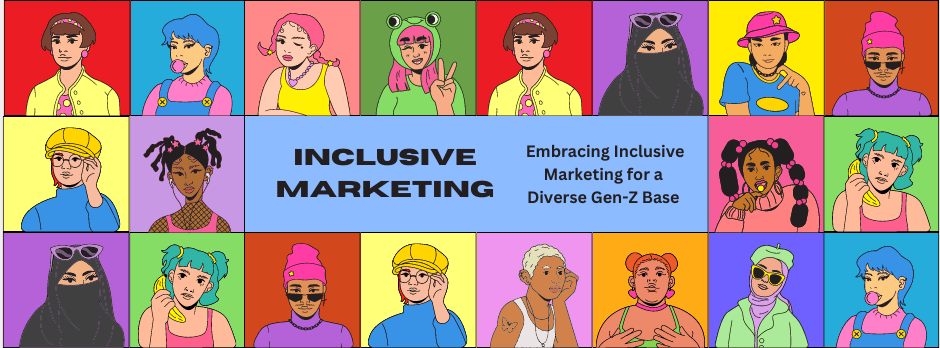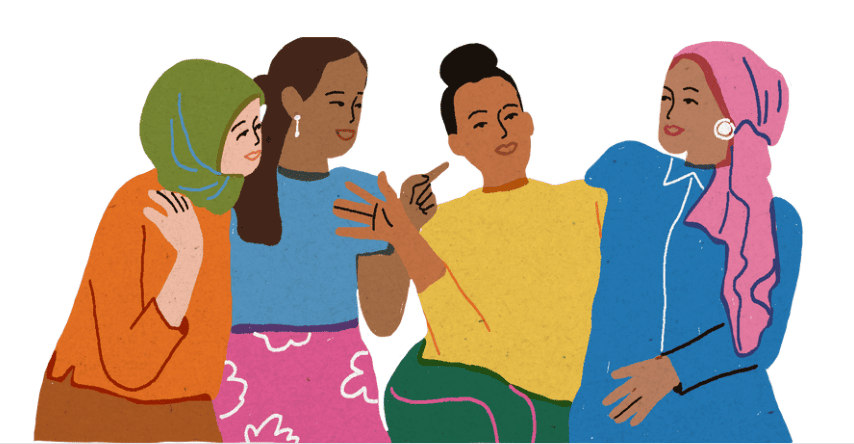
Inclusive Marketing:
Embracing Inclusive Marketing for a Diverse Gen-Z Base
In today’s diverse and interconnected world, the need for inclusive marketing has never been more critical. With Generation Z emerging as a powerful force in the consumer landscape, brands that embrace inclusivity have a unique opportunity to forge meaningful connections with this influential demographic. In this blog post, we will explore the significance of inclusive marketing and provide actionable strategies for marketing companies working with brands targeting Gen-Z.
Understanding Gen-Z:
Born between the mid-1990s and early 2010s, Gen-Z is a generation characterized by its diversity, digital fluency, and socially conscious mindset. With an inherent desire for authenticity and representation, Gen-Z consumers actively seek out brands that align with their values and cater to their diverse identities. Marketing companies aiming to connect with this generation must adopt inclusive strategies that celebrate diversity, foster belonging, and empower individuals from all backgrounds.
67%
of consumers think it’s important for brands to promote DEI (SOURCE)
46%
of consumers go out of their way to choose brands that are diverse (SOURCE)
45%
of consumers are willing to pay more for a product from a brand that reflects and promotes DEI (SOURCE)
80%
of Gen-Z feel it’s important for brands to address diversity and inclusion (SOURCE)
6 Principles of Inclusive Marketing
(as told by Salesforce)

Start with Tone
The tone of your marketing messages sets the foundation for inclusive marketing. It’s important to adopt a tone that is respectful, inclusive, and relatable to your target audience. Consider the emotions and experiences you want to evoke and ensure that your tone aligns with the values and aspirations of Gen-Z. Avoid language that may alienate or marginalize any particular group.
Be Intentional with Language
Words have the power to shape perceptions and reinforce stereotypes. Inclusive marketing requires a conscious choice of language that avoids assumptions and biases. Use gender-neutral language when possible and be mindful of cultural nuances and sensitivities. Strive for inclusivity by avoiding terms or phrases that perpetuate stereotypes or exclude certain groups. Aim for inclusive language that embraces diversity and welcomes everyone.
Ensure Representation
Representation is a key pillar of inclusive marketing. Gen-Z wants to see themselves reflected in the brands they engage with. Ensure that your marketing materials, whether it’s advertisements, social media content, or product imagery, represent a diverse range of identities, ethnicities, genders, body types, and abilities. Authentic representation goes beyond tokenism and requires a genuine commitment to inclusivity.
Consider Context
Context matters in inclusive marketing. Consider the broader social, cultural, and historical context in which your marketing messages will be received. Different communities and cultures may interpret messages differently, so it’s essential to conduct research and consult with diverse perspectives to ensure that your marketing efforts are respectful and culturally sensitive. Tailor your messaging to resonate with specific communities while still maintaining a consistent brand identity.

Avoid Appropriation
Cultural appropriation is a sensitive issue in marketing. It refers to adopting elements or symbols from a culture without understanding or respecting their significance. Inclusive marketing demands that you avoid appropriating cultural symbols, practices, or traditions for commercial gain. Instead, focus on genuine cultural appreciation, collaboration, and respectful representation, working with communities and experts to ensure your approach is authentic and informed.

Counter Stereotypes
Inclusive marketing challenges stereotypes and biases that have long existed in advertising. Break free from stereotypical portrayals and embrace diversity in your campaigns. Highlight the strengths, talents, and achievements of individuals from underrepresented groups. Challenge traditional beauty standards, gender roles, and other limiting narratives. By countering stereotypes, you contribute to a more inclusive and equitable society.






Leave A Comment
You must be logged in to post a comment.